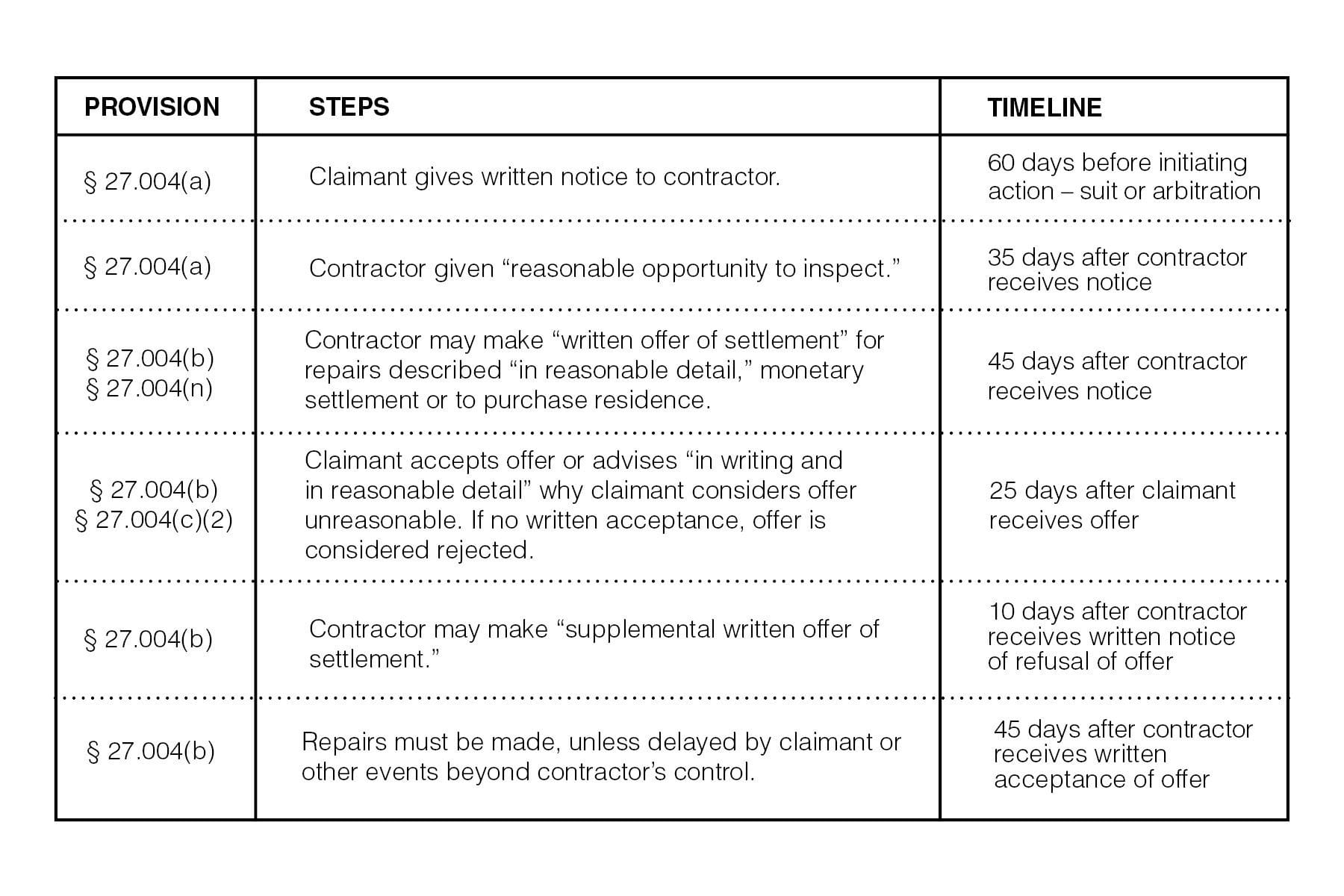In 2003, Texas passed a law governing the steps a residential homeowner must take before bringing a lawsuit against a contractor for a construction defect. The process allows builders and other involved parties an opportunity to immediately inspect and repair before a homeowner may file suit, and it offers limitations on the consumer awards available under the Texas Deceptive Trade Practices Act.
Contractors should be aware of the steps and timelines so they can take advantage of the provisions in the RCLA that allow for limiting damages if a homeowner “rejects a reasonable offer” (Tex. Prop. Code § 27.004(e)). Because a contractor, under this section, is not liable for that percentage of damages caused by another party’s negligence, this also allows an opportunity for the contractor to ascertain who is liable and have that party involved in the process (Tex. Prop. Code § 27.003(a)(1)). If a contractor provides written notice to a subcontractor, the contractor may retain “rights of contribution from the subcontractor” for any settlement with the claimant (Tex. Prop. Code § 27.004(p)).
What is a construction defect?
In general, it is a defect arising out of the design, construction or repair of a residence and includes physical damage to other structures or property caused by the defect.
Originally, “construction defect” had two definitions – one under the RCLA, and one under what was the RCCA (the Texas Residential Construction Commission Act, Tex. Prop. Code §§ 401.001 et seq.(historical text)). The RCCA was allowed to sunset in 2009 and is no longer in force.
Definition under the RCLA Tex. Prop. Code § 27.001(4):
“A matter concerning the design, construction, or repair of a new residence, of an alteration of or repair or addition to an existing residence, or of an appurtenance to a residence, on which a person has a complaint against a contractor. The term may include any physical damage to the residence, any appurtenance, or the real property on which the residence and appurtenance are affixed proximately caused by a construction defect.”
Timeline for Notice, Offer and Repairs
The statute provides detailed deadlines for the parties to follow. The most important are in the chart below; because there are other requirements, a contractor must rely on an attorney with experience in construction law to ensure all deadlines and requirements are met.
All written notices must be by certified mail, return receipt requested. If a claimant rejects an offer, the contractor must certify that fact in an affidavit, filed with the court or arbitrator Tex. Prop. Code § 27.004(j).
If an action must be initiated “to prevent expiration of the statute of limitations,” or if the complaint under the RCLA is a counterclaim, then the action is abated to allow compliance with the RCLA. In that case, the inspection is made by the 75th day after service, and the offer by the 60th day after service (Tex. Prop. Code § 27.004(c)).
Summary
General contractors facing a residential construction defect claim should immediately reach out to their insurer and counsel for assistance in navigating the RCLA process. The insurer and counsel will assist with providing the necessary written notices to all parties who may also be liable, including subcontractors, engineers and home warranty companies.
Need help understanding RCLA? Our contract review experts provide guidance to our commercial insurance clients.






